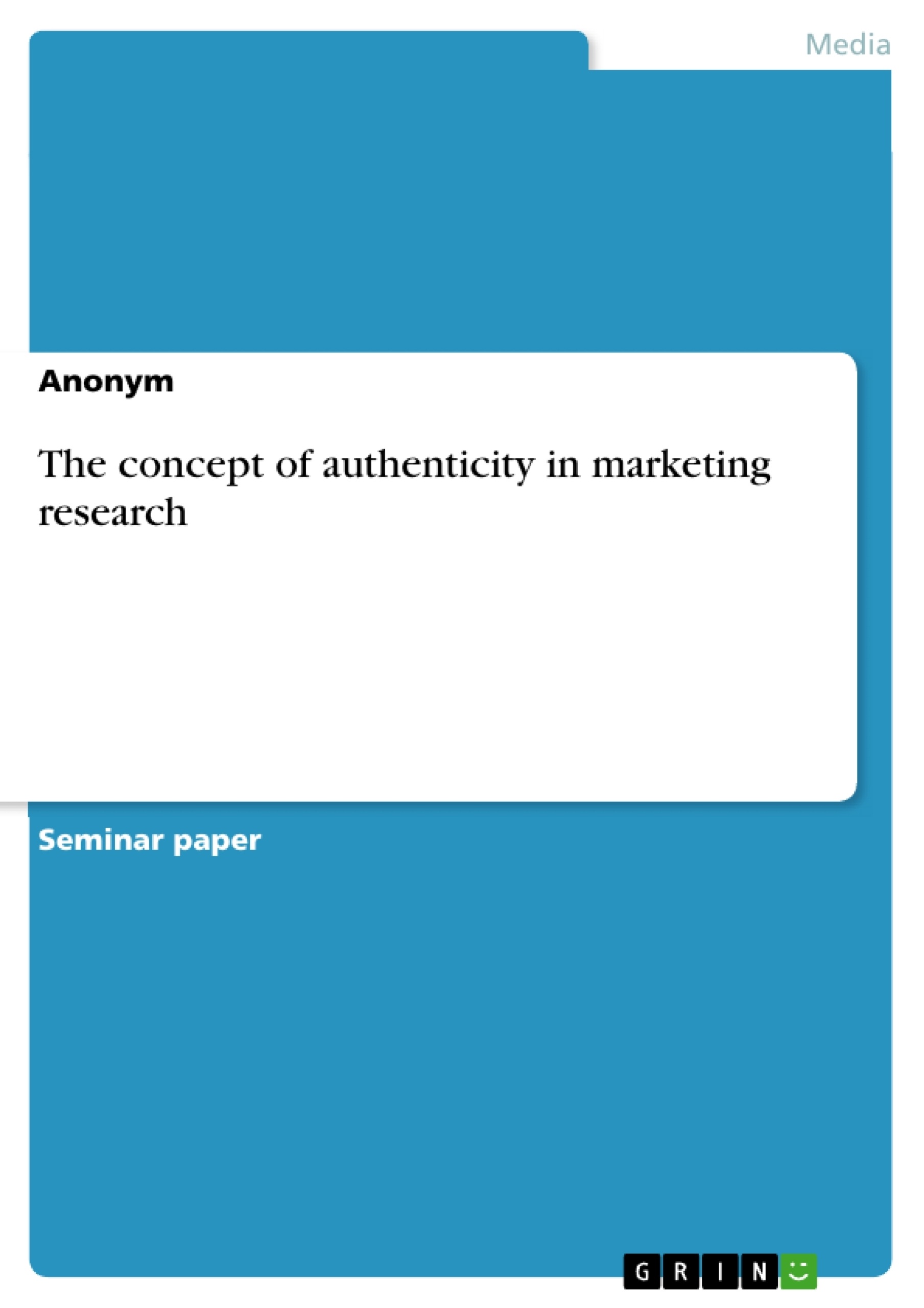As the online world becomes louder and more crowded, it's increasingly important to practice authenticity in marketing. Beyond products and services, audiences want to connect on a deeper level with the brands they love.
Today's consumers also look for brands that embody values similar to their own. They prefer to support companies they identify with on a greater level than simply purchasing a product they like. Especially younger generations (millennials and Gen Z in particular) are often associated with the practice of buying what a brand values, rather than a specific product. Consumers expect brands to be authentic by sharing their desire to make the world a better place to live, work and do business.
Inhaltsverzeichnis (Table of Contents)
- Introduction.
- Concept of Authenticity.
- Importance of Authenticity.
- Authenticity of Brands.
- Measuring Authenticity ....
Zielsetzung und Themenschwerpunkte (Objectives and Key Themes)
This paper explores the concept of authenticity in marketing research, analyzing its significance and practical implications for brands. It examines the concept of authenticity itself, explores the importance of authenticity for building trust and loyalty, and investigates how brands can cultivate and project authenticity.
- The definition and multifaceted nature of authenticity
- The growing importance of authenticity in building brand trust and loyalty
- The practical strategies for cultivating and projecting authenticity in branding
- The relationship between authenticity and consumer perception
- The impact of authenticity on brand management and brand strategy
Zusammenfassung der Kapitel (Chapter Summaries)
- Introduction: This chapter highlights the increasing need for authenticity in marketing, emphasizing the importance of connecting with consumers on a deeper level and aligning brand values with consumer values.
- Concept of Authenticity: This chapter dives into the definition of authenticity, exploring various perspectives from marketing literature. It examines key aspects of authenticity including continuity, credibility, integrity, symbolism, and the holistic approach to authenticity.
- Importance of Authenticity: This chapter explores why authenticity is crucial for brands. It discusses how authenticity contributes to competitive advantage, fosters brand trust and loyalty, and influences consumer decision-making. It also examines how consumer expectations regarding authenticity have evolved, emphasizing the need for brands to be genuine and transparent.
- Authenticity of Brands: This chapter focuses on how brands can cultivate and project authenticity. It highlights the importance of internalizing authenticity within the company's corporate culture and values. It explores various dimensions of authenticity and how brands can influence these dimensions to create a more authentic perception.
Schlüsselwörter (Keywords)
The primary keywords and focus topics of this paper include: brand authenticity, consumer perception, trust, loyalty, brand management, brand strategy, corporate social responsibility, and holistic marketing.
- Quote paper
- Anonym (Author), 2022, The concept of authenticity in marketing research, Munich, GRIN Verlag, https://www.grin.com/document/1327923




